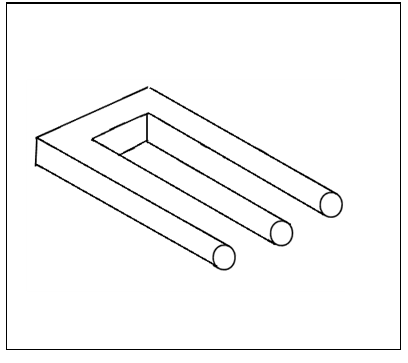The measurement problem in physics is that while Schrödinger’s equation predicts how a quantum wave evolves, nothing predicts the physical event produced when it is measured. The wave collapses randomly, so the problem is how do many quantum states instantly become one physical state? This problem was raised early last century, and no progress has been made on the matter since:
“The history of the quantum measurement paradox is fascinating. There is still no general agreement on the matter even after eighty years of heated debate.” (Laughlin, 2005), p49.
Essentially, we understand how quantum waves spread but not how they collapse, and but for this problem could accept that they are real, as after all:
“… why not simply accept the reality of the wave function? (Zeh, 2004), p8.
This didn’t happen because the measurement problem means that quantum theory:
“… paints a picture of the world that is less objectively real than we usually believe it to be.” (Walker, 2000), p72.
In other words, quantum theory makes no sense, so it can’t be real. Quantum collapse is part of quantum theory, so if quantum waves are real, it is too. If we accept that part of quantum theory is real, then we must accept that all of it is, including the jump of quantum collapse:
“… if we are to take y [the quantum field] as providing a picture of reality, then we must take these jumps as physically real occurrences too…” (Penrose, 1994), p331.
Schrödinger tried to explain quantum theory but failed, as did all who came after him, because its waves superpose in physically impossible ways, entangle to ignore the speed of light limit, and instantly collapse to a point when observed, but:
“How can something real disappear instantaneously?” (Barbour, 1999), p200.
When Pauli and Born defined the quantum field as the probability that a physical event will occur, quantum theory inevitably became about what wasn’t physical, so:
“For the first time in physics, we have an equation that allows us to describe the behavior of objects in the universe with astounding accuracy, but for which one of the mathematical objects of the theory, the quantum field y, apparently does not correspond to any known physical quantity.” (Oerter, 2006), p89.
The measurement problem, that quantum waves act in impossible ways, then produces the paradox that unreal quantum events cause real physical events, but as one physicist notes:
“Can something that affects real events … itself be unreal?” (Zeh, 2004), p4.
If the quantum states that predict physical states are unreal because they are impossible, then as Penrose says:
“How, indeed, can real objects be constituted from unreal components?” (Penrose, 1994), p313.
The quantum paradox is that if quantum unreality causes physical reality, then what doesn’t exist is causing what does, which is illogical. If one thing causes another, how can the effect be real if its cause isn’t? And if only one is real, surely it is the cause not the effect?
For over a century, physics has faced this paradox like a deer in headlights, blinded by the brilliance of quantum theory but stuck in the orthodox stance of materialism. No-one has resolved it in the past hundred years, so if nothing changes, the next hundred years will be the same!

Yet paradoxes vanish when false assumptions are exposed. For example, Figure 3.26 seems to have two square and three round prongs, based on where you look, which is impossible. If you look at the top, there are two square prongs, but if you look at the bottom, there are three round ones! Both seem to be true, producing the paradox that the same object has two and three prongs! The answer isn’t to invent some sort of square-round duality, but to recognize that the same line can’t bound both a square and a round prong at the same time. When this false assumption is exposed, the paradox ceases to exist, and it becomes just an illusion.
Likewise, the quantum paradox, that unreal quantum events cause real physical events, arises from the false assumption that physical things constantly exist, so they can’t be generated. The answer to this paradox isn’t to institutionalize its illogic, by inventing impossible wave-particle dualisms, but to expose the fallacy behind it, of materialism. If matter doesn’t constantly exist, the quantum paradox disappears, because quantum waves can now create physical events as quantum theory says. What makes this possible is that processing waves on a network can spread, superpose, collapse, and restart just as described. This then is quantum realism, that all physical events are generated by quantum events beyond the grasp of materialism.